Meal kits keep failing in M’sia, this new biz thinks targeting T20s is part of the solution
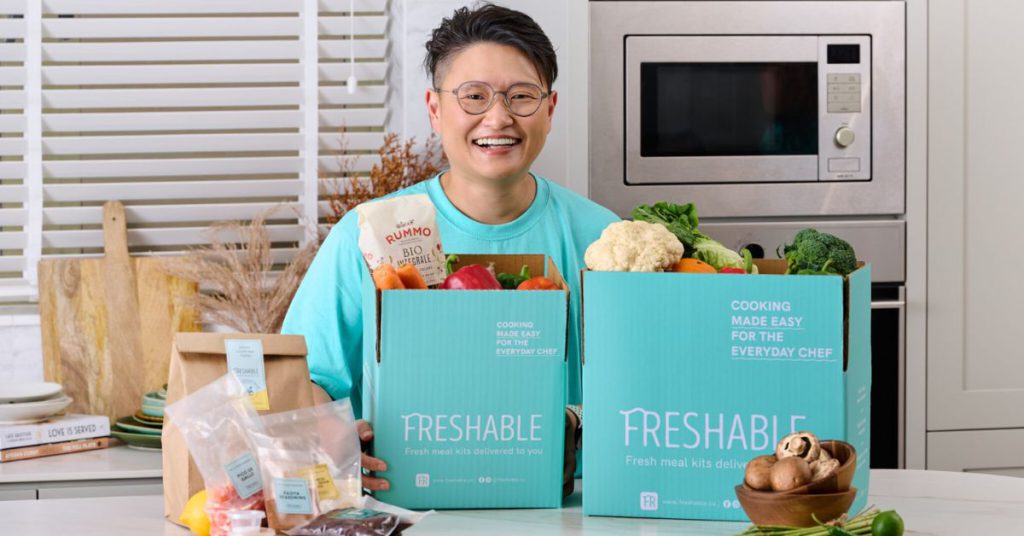
Meal kit deliveries are nothing new, and plenty of meal kit businesses have popped up over the years in Malaysia.
Examples include Urban Stove, Fooddit, Chef’ Up, and BoxAhead, all names we’ve written about in the past.
Unfortunately, none of those businesses seem to have lasted.
Perhaps it’s because the Malaysian crowd just isn’t ready for the concept, even almost a decade later. Eating out can also be relatively inexpensive as we’re often spoilt for choice with options such as food courts, warungs, and hawker centres.
Whatever the reason, it hasn’t stopped another Malaysian business from attempting to make the concept work. Going by the name of Freshable and launched in late 2022, they believe they’re doing something different compared to the other businesses that have tried before.
Merging passions
Before being founders of Freshable, Cecily, Henry, and Adeline were friends who had known each other for 20 years.
The idea for the business came from CEO Adeline’s experience in the import and distribution industry.

“I have another business started 10 years ago importing and distributing food and beverages to supermarkets, hotels, and restaurants in Malaysia,” the CEO explained. “I was thinking about how I can exit the business in the future when I talked to Henry.”
That’s when Henry gave her the idea of leveraging her current business network and knowledge in importing and distributing to start up something related to IT. Prior to her import and distribution business, Adeline had been in the IT industry for over 10 years.
Taking Henry’s advice, she began researching and learning about meal kit businesses in overseas markets with her other friend, Cecily.
Realising that the concept synchronised perfectly with her importing business, Freshable was created.
A recipe for success?
As ambitious and experienced as Adeline is, the meal kit industry hasn’t shown remarkable potential in Malaysia.
When asked to address the failed attempts of other businesses to operate locally, Adeline mused, “There could be a lot of reasons why the other meal kit businesses have not been able to take off.”
However, she believes that how Freshable operates sets them apart from those businesses.
For one, leveraging her past expertise in the food industry, the team has been able to source directly from manufacturers, growers, and farmers.
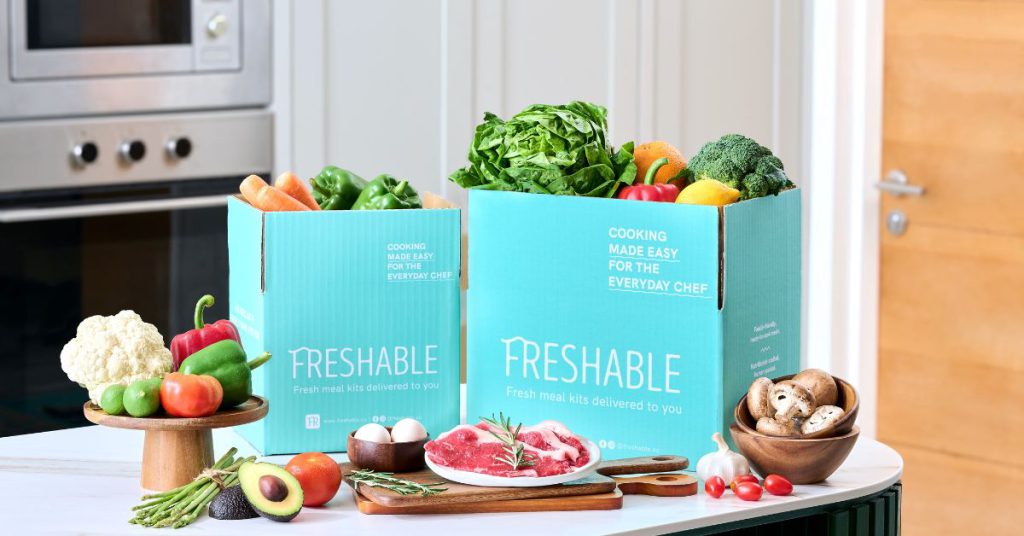
Freshable also caters to the health-conscious crowd, allowing customers to choose healthy options depending on their dietary requirements.
Adeline said, “Our current menu provides alternatives that are free of gluten and refined sugars, as well as low carb, keto, vegetarian, vegan, heart-smart, and diabetic-friendly recipes.”
In any case, all ingredients and allergens are listed in the recipes. Certain recipes even allow customers to swap out ingredients as per their diets, while some offer add-on options.
“Before we launched the business, we spent a year planning and conducting trial and error with our families, friends, and potential investors to see if they like the business concept and if they think it is practical,” Adeline shared.

The team sent boxes to 30-40 people over the course of three trials and would change the recipes and target different demographics each time.
After receiving good feedback, they decided to have a minimum viable product (MVP) run.
“The MVP ran for six months, and we analysed the business performance and saw an upward growth trend,” the CEO said.
Destination: Flavourtown
One of Freshable’s most interesting USPs is its initiative, Destination Delicious, which introduces different cuisines each month based on country, region, or festivals.
For example, in June 2023, they released Sarawakian recipes in conjunction with the Gawai Harvest Festival. This included Sarawak Laksa (RM39.90 for two), Pansoh (RM39.90 for two), Manicai Bihun (RM24.90 for two), and more.
Other intriguing recipes include Crunchy Tuna Patties with Green Goddess Salad (RM49.90 for two), Chicken Tikka Masala (RM39.90 for two), and more.

Next month, to celebrate the Spanish holiday, La Tomatina, they will offer Spanish signature dishes, especially those with tomatoes, to echo the festivities.
According to Adeline, the team still has a library of recipes that hasn’t been launched. They roll out new recipes on the Freshable website on a weekly basis.
A well-oiled machine
To develop interesting recipes, Freshable employs recipe writers who research the destination or cuisine they’re briefed on. After getting their proposals approved by the management, they’ll write the recipe and determine the ingredients’ portions.
“I always encourage our team to engage with bloggers, events, chefs, and influencers to ensure a continual influx of fresh ideas and inspirations,” Adeline shared.
The recipes will then be sent to Freshable’s in-house dietitian to work on the nutritional value and allergen details while providing healthy options or alternatives. The whole process usually takes about three to four weeks.
The team then sources key ingredients from the dish’s origins to ensure authenticity.
“Based on my past 10 years of experience as an importer and wholesaler, we know where to source for fresh ingredients locally and internationally,” Adeline shared.
When orders come in, Freshable’s kitchen operators will cut and pack the fresh ingredients in separate, labelled bags according to the grammage specified by the recipe cards.

The team then vacuum seals the ingredients to keep them fresh, with poultry stored in insulation bags and ice gels.
On that note, the team has its own cold-chain transportation to deliver temperature-sensitive ingredients. At the same time, they also work with third-party delivery companies.
Based in Kuala Lumpur, Freshable only delivers to customers throughout the Klang Valley to maintain the freshness of its ingredients.
The company charges a delivery fee of RM12 for selected areas and offers complimentary delivery when customers spend RM150 or more in a single transaction.
Carving out a community
There’s no doubt that Freshable’s products aren’t cheap. Simple-sounding recipes such as Vegan Japchae cost RM56.90 for two, while Sambal Prawns & Veg cost RM58.90 for two.
But this makes sense because Freshable’s target demographic is the T20 population in the Klang Valley, as shared by Adeline.
The company focuses on high-quality, often imported ingredients, especially for foreign cuisines, but since Freshable buys directly from the source, they can reduce the cost of those premium ingredients.
Premium positioning aside, the meal kits also cater to those who are eco-conscious, as they’re said to minimise food waste by rationing the ingredients needed.
“In the Klang Valley area, where the average household size is substantial, common ingredients like sauces, vegetables, and staples such as pasta or rice often languish for extended periods and find their way to the bin due to their limited shelf life,” Adeline said.

Designed with busy urbanites in mind, Freshable’s meals are ready to eat in 30 minutes, as many ingredients are already prepped.
The CEO says, “Freshable is committed to empowering our customers to cook smarter, not harder.”
Educating Malaysian eaters
Ultimately, the team still faces the challenge of getting local customers to understand the meal kit concept.
“The term ‘ready-to-cook’ is a bit confusing in Malaysia, and Malaysians do not know what is a meal kit,” Adeline shared.
The team collaborates with influential names such as fitness celebrities to educate the public and sets up pop-up booths to meet customers and introduce their products.
“By offering exclusive and limited-time options each month, we can attract customers who crave variety and excitement.”
With their T20 target market and business experience and networking, Freshable might just have what it takes to do what the other Malaysian meal kits couldn’t—survive.
Also Read: When not cooking at a Michelin-starred spot, this M’sian is designing Japanese chef knives
Feature Image Credit: Freshable
Meet the serial entrepreneur behind Ali, Muthu & Ah Hock that dishes out the muhibbah spirit
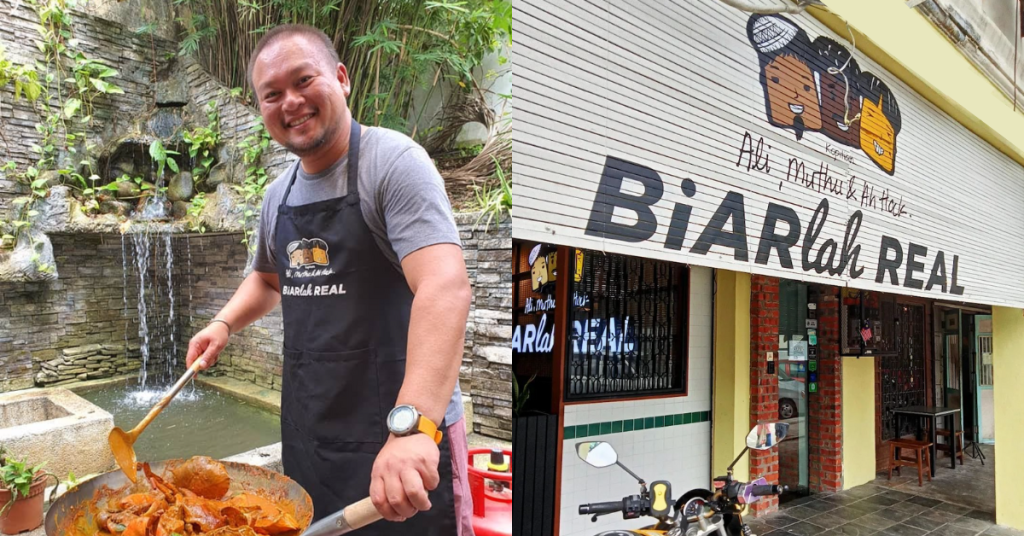
When we think of places for a catch-up session with friends, the usual options are mamaks, cafes, and bars.
However, cafes are not spots you can go to regularly, with their mid-range prices, whilst bars can be quite limiting for non-drinkers. This leaves mamaks as many people’s go-to option, but not everyone necessarily enjoys the type of food served there.
To solve this and give Malaysians a place where any Tom, Dick, and Harry can come together, Ernest Ong, Colin Soh, and Bruce Wong created a kopitiam-styled restaurant called Ali, Muthu & Ah Hock.
Editor’s Update [12/06/23, 2.00PM]: Certain paragraphs of this article have had their information updated to reflect greater accuracy.
Staying true to his roots
As a kid, Ernest would often help out at his family’s Nyonya restaurant in SS2. This continued until he left to pursue a Bachelor in Computing from Monash University, Australia.
His experiences in the F&B industry impacted him so much that he ended up leaving his career at an American petrochemical company to pursue one of his milestones.
“I have always had milestones in my life,” Ernest told Vulcan Post. “One of them was that I told myself that I am going to learn from the corporate world for 10 years and then start something of my own.”
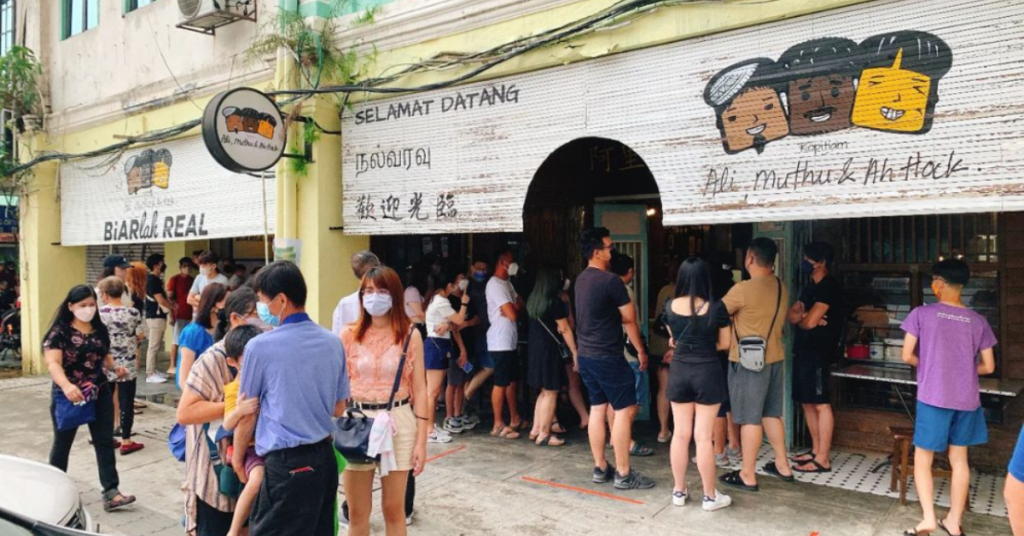
With Colin and Bruce, Ernest established “Tom, Dick and Harry’s” bar in TTDI, KL. The first bar proved successful, and they expanded it to two other outlets.
This encouraged Ernest to continue building his F&B portfolio. First, with Hoofed, a restaurant specialising in porky meals, which didn’t work out, and Durian King.
Ali, Muthu & Ah Hock immediately popped onto the local F&B scene. At the time of writing, Ernest shared that he is now the only remaining founding member after the others “sold out a few years ago”.
Heading an F&B empire
Opened in 2013, the eatery serves local favourites such as nasi lemak, kuey teow goreng, and asam laksa. Along with those are kopitiam classics such as roti bakar and iced Neslo.
Its founding philosophy is to be a place where people could have a meal together regardless of race and religion. The brand’s name clearly reflects this intention too.
“I wanted a place not just to dish out good products, but a place where we can also dish out the Malaysian Spirit, the Muhibah Spirit. Hence our tagline ‘Biarlah Real’,” Ernest explained.
Having grown up in the field, Ernest said his interest was instilled. “That was the only thing I knew how to do then. If I had to invest my last penny on something, it’s got to be that.”
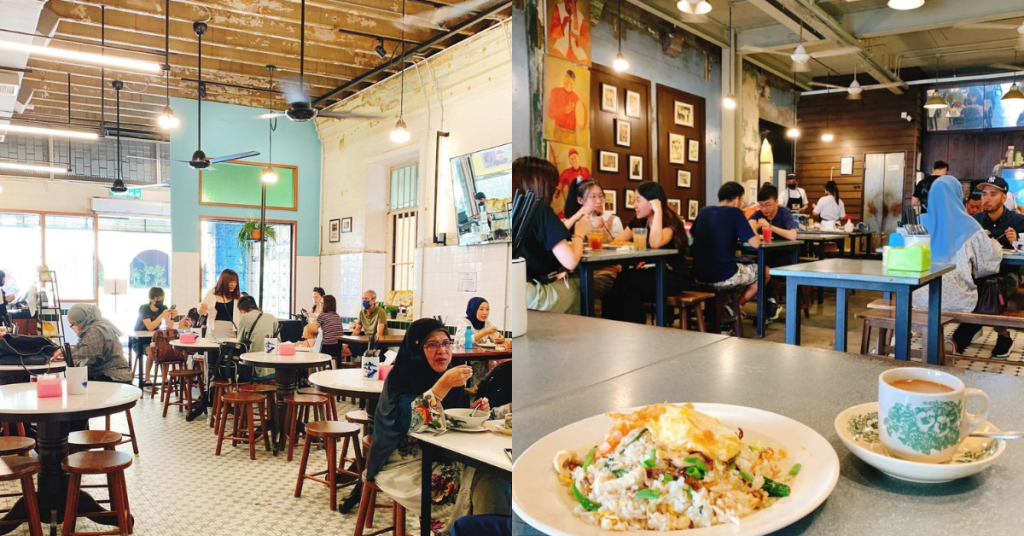
Unsurprisingly, the founder cooks “pretty well” and mainly curates the restaurant’s menu.
Speaking candidly to Vulcan Post, he shared that he believes many people can cook well, but the concern comes from addressing the eaters.
By sticking with the kopitiam concept, Ali, Muthu & Ah Hock could properly shape and develop their offerings towards the initial goal.
This also ensured that Ernest avoided the entrepreneurial trap of doing things to serve oneself instead of the recipients, or, as the Malays would call it, “syiok sendiri”.

“We had a concept for Ali, Muthu & Ah Hock. We developed the menu based on the concept and not based on what I like to cook. Cooking for the right crowd and dishing something that would fit the taste buds of the masses, that would require some skills and experience,” he explained.
It’s similar to how one might be a great cook at home but not the best at being an F&B chef. Maintaining the quality of the food with the quantity and meeting a majority of customers’ preferences can be a tricky balancing act.
It’s just part of the journey
Looking around the Klang Valley, there’s no shortage of kopitiam-styled eateries. From decades-old mum-and-pop shops to shiny new restaurants, there are plenty of options.
But this doesn’t faze the founder much.
“We certainly have some measures to maintain our quality. We dish out not just good products, but we also dish out good Malaysian Spirit.”

On the contrary, his biggest and “never-ending” challenge of running businesses in the F&B industry has more to do with the people. Specifically human resources.
Ernest’s experience of 13 years and counting in the field has taught him that this is a consistent trial. And more so after the pandemic, where it seems that everyone wants to open an F&B outlet.
Good food and drinks are always in demand, and people want in on the profits. “Your staff will move along with this growth but then that’s life,” he quipped.
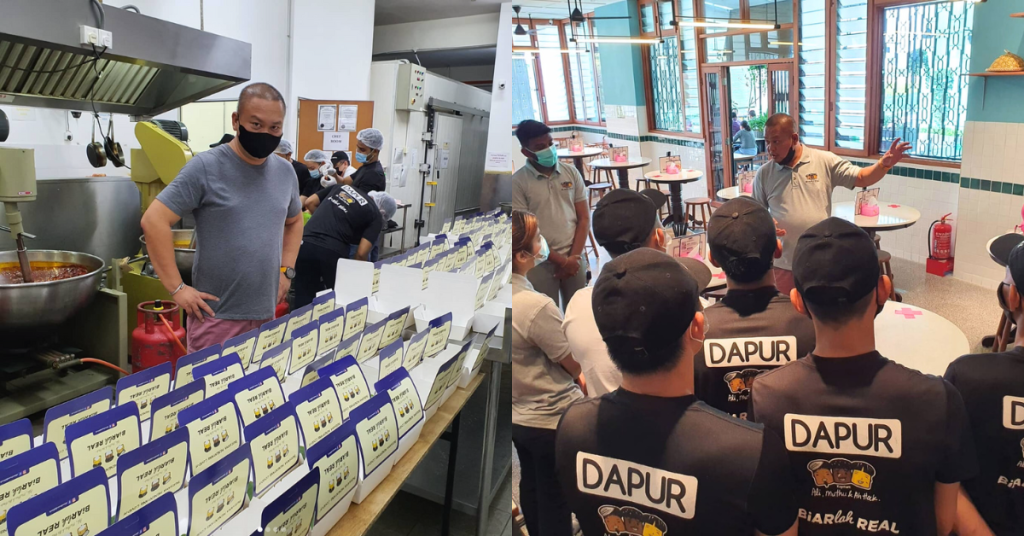
“If you ask me 10 years from now what is the biggest challenge, I would give you the same answer. If you ask the rest of my peers, I think they would give you the same answer—staffing.”
According to numerous reports, employee turnover rates stem from long working hours, lower salaries, and general changes in the landscape.
But this isn’t stopping Ali, Muthu & Ah Hock from working towards their rapid expansion.
They plan to open 40 outlets within the Klang Valley (currently 15 outlets) before growing beyond the city’s borders.
It’s unsurprising that Ali, Muthu & Ah Hock is pursuing a more modest growth trajectory instead of biting off more than they can chew. While some entrepreneurs get too ambitious, Ernest believes in a balanced strategy.
“There is a very fine line between passion and career. Most of the time you need a career to fuel the passion and not the other way round,” he concluded.
- Learn more about Ali, Muthu & Ah Hock here.
- Read other articles we’ve written about Malaysian startups here.
Also Read: When not cooking at a Michelin-starred spot, this M’sian is designing Japanese chef knives
Featured Image Credit: Ernest Ong and Ali, Muthu & Ah Hock
What is deeptech? We dove into the industry & existing Malaysian startups in it.
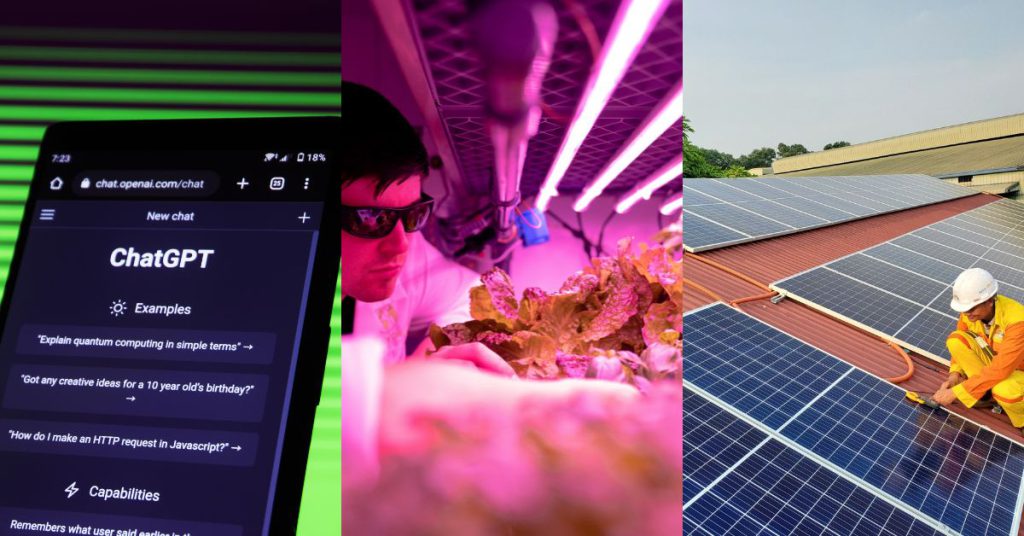
The term “deeptech” has been gaining popularity in the startup scene in the past few years.
A Future Market Insights report stated that the deeptech market revenue totalled US$431 million in 2021, and is expected to reach US$3,788 million by 2032.
I first got acquainted with the term at a local tech conference. Admittedly, my only understanding of it came from the panel speakers of VCs referencing case studies like Elon Musk’s SpaceX, climate-based startups, the blockchain, and… quantum computing?
So here I am now, researching and writing an explainer piece to learn about what deeptech encompasses, and if there are any Malaysian startups operating in this space.
Down to the definition
Simply put, deeptech refers to a category of startups that create technologies based on scientific breakthroughs and engineering innovations.
Deeptech startups often aim to solve difficult problems in healthcare, energy, and transportation, to name a few. They also have the potential to disrupt entire industries.
Think using computer vision to guide self-driving cars, AI to forecast earthquakes, and clean energy solutions to curb global warming as some examples.
Did you know: Deeptech is a term coined by Swati Chaturvedi, the founder and CEO of the US-based online investment platform Propel(x) connecting early-stage deeptech companies with investors.
These companies tend to generate valuable intellectual property (IP), and their products and services are hard to reproduce.
More often than not, the use of AI, IoT, robotics, blockchain, biotech, AR/VR, quantum computing, and the like, are tools required in getting these startups to their goal.
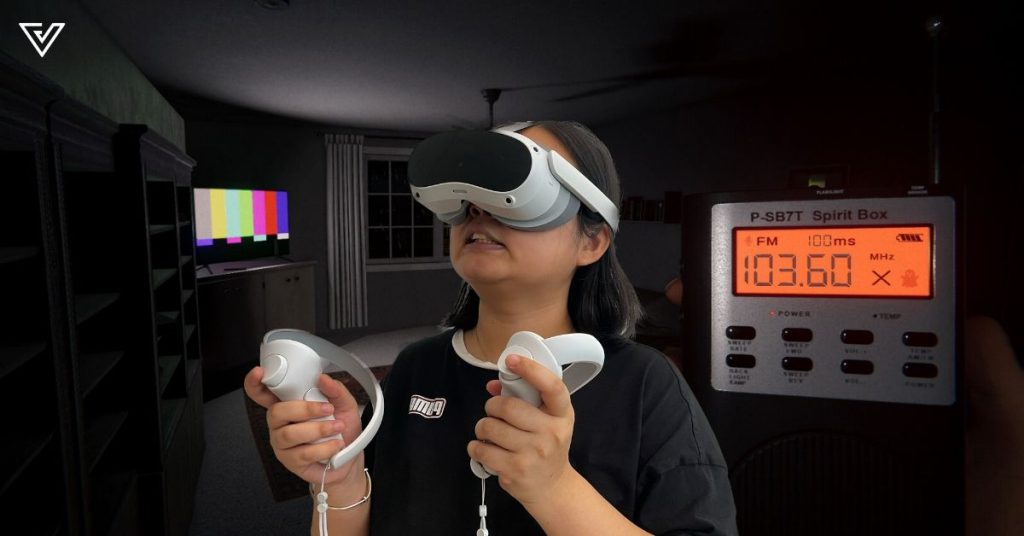
The term deeptech is intended to set it aside from its opposite, shallowtech, which is a relatively simple tech advancement like digitalising a business’s processes. For example, a bookshop offering e-books for digital download.
High investments in time and money
Entrepreneurs in deeptech generally require pretty intense R&D and funding to bring their tech to market.
But because most deeptech companies are built around fundamentally new and unproven technology, they carry higher risks that can only be eliminated much later in the process.
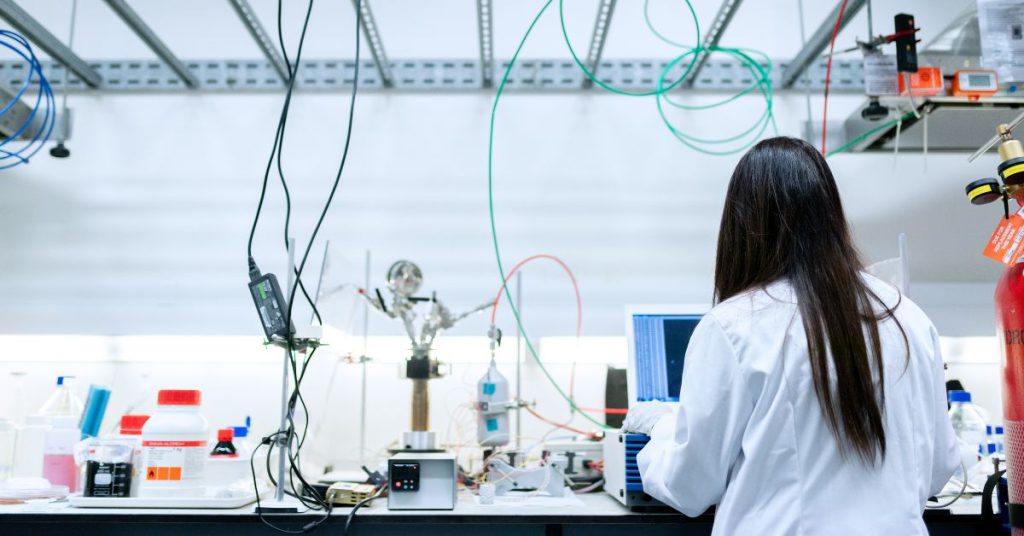
This makes it no surprise then that initial funding can be a struggle due to their startup’s complex nature.
From an investor’s perspective (especially early-stage ones), it can be difficult to understand the potential of a deeptech startup, as they often need large investments over a longer term before they even start seeing any returns.
Commercial success can also take longer since these disruptive technologies need time to build an ecosystem in the market, and an even longer time for market adoption.
The good news is, when they do get to market, it’s tough for competitors to replicate what they’ve done.
They’ll likely rewrite the rules and make other businesses irrelevant. Examples of success stories include the ecosystems of Google and Apple.
Ultimately, founders need to be aware of the risks and rewards of operating in the deeptech space, and must be willing to pivot and repivot based on market and customer feedback.
Investors should also be prepared for this before backing the company and supporting the entrepreneurs as they navigate through the challenges of building a successful deeptech company.
What are the Malaysian companies involved in deeptech?
Deeptech companies fundamentally carry a technology-first approach. Their founders have typically developed a novel technology or IP as part of their PhD thesis, or postdoc work in search of a real-world problem to solve.
As the characteristics of a deeptech startup involve companies solving difficult global problems with scientific breakthroughs, my research has led me to learn that Vulcan Post has actually featured quite a number of these startups.
One example is BoomGrow, a company growing and delivering pesticide-free greens via their indoor, tech-driven vertical farms utilising 5G, AI, machine learning, and data analytics.
KANZU Research (KANZU) can also be considered another deeptech company in Malaysia. They’ve used their geotagging technology in the nation’s 2022 flood relief efforts to identify the locations of victims.
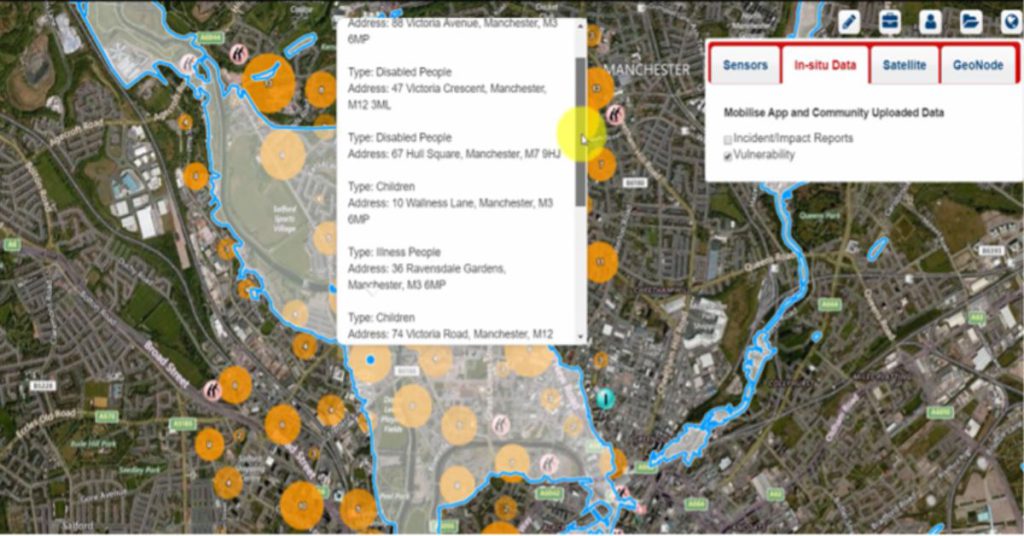
Meanwhile, DATA8 uses blockchain technology to store patient data from local hospitals for easy transferability and documentation.
Then, there’s Spacein Sdn Bhd (Spacein), a company that develops small satellites for IoT applications in farms, so that workers can monitor plantations autonomously, and from a distance.
SOLs Energy is another example. The company is a provider and installer of solar power and electric vehicle chargers in residential homes and businesses around the country.

Local support for deeptech funding, research, and growth
To grow and foster more deeptech startups in Malaysia, the Ministry of Science, Technology, and Innovation (MOSTI) actually has a dedicated programme.
Called Programme Upskilling for Deeptech and Futureskills, it’s part of the MySTIE Framework, AKA the plan that’ll help Malaysia find five unicorns by 2025.
The programme’s objective is to upskill local talent in developing quality innovations while creating 5,000 high-skilled jobs for the economy.
Local startup agencies like Cradle Fund, MRANTI, and more, will be a part of the efforts in training players under this programme.
Recently, a Hong-Kong based startup incubation programme called HK Tech 300 has also extended a hand in helping build up deeptech companies in Malaysia, alongside research universities like Universiti Malaya (UM) and Universiti Putra Malaysia (UPM).
At present, Malaysia has research hubs like Cyberview providing local deeptech startups with a conducive space for their R&D, market research, and eventual support for commercialisation too.
From the looks of it, the country is definitely laying the groundwork for more deeptech startups to develop. It’s far from an easy path for the entrepreneurs and startups looking to tackle deeptech, but their perseverance will help us make breakthroughs in healthcare, food security, climate change, and more.
- Read other articles about Malaysian startups here.
Also Read: When not cooking at a Michelin-starred spot, this M’sian is designing Japanese chef knives
Featured Image Credit: (Pexels) Mojahid Mottakin / ThisIsEngineering / Trinh Trần
PayNet Malaysia’s hackathon attracted 440 participants, here are the winning solutions
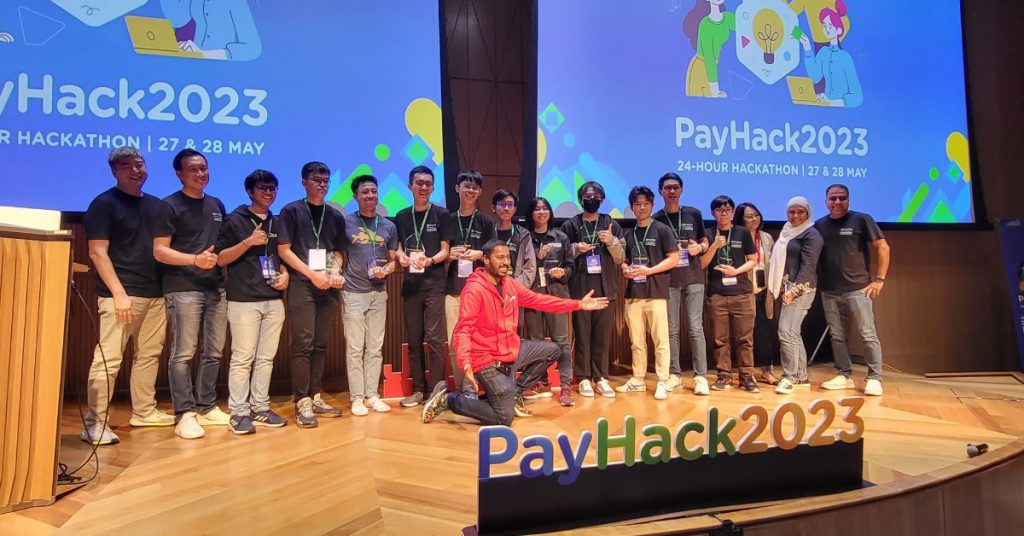
[This is a sponsored article with PayNet.]
Imagine a day when Malaysians can simply stroll around without carrying cash in hand; every hawker aunty accepts e-wallet payments, and even grandparents are digitally savvy at transacting with their phones.
The push for getting Malaysians to use digital payments daily is ramping up, and Payments Network Malaysia Sdn Bhd (PayNet) wants to expedite this.
Did you know: PayNet is the national payments network and shared central infrastructure for Malaysia’s financial markets. As the national provider of financial market utilities, PayNet aims to build inclusive, accessible and efficient payments, as well as financial ecosystems for Malaysia.
With the objective of accelerating Malaysia’s digital payments ecosystem and a grand prize of RM20,000 up for grabs, PayNet has called for Malaysians to develop innovative solutions via a 24-hour hackathon.
Called PayHack 2023, it took place between May 27-28, 2023.
But first, a summit on the digital payments landscape
The hackathon was a part of PayNet Digital Payments Week 2023 (PDPW), a week-long digital payment industry event that happened between May 24-29, 2023.
PDPW was PayNet’s first event bringing together payment-focused experts, investors, startups, and academia to talk about everything digital payments.
Its aim was to converge Malaysia’s digital payments ecosystem with that of those from the international scene through the latest insights, opportunities, and global trends that are reshaping Malaysia’s digital payment landscape.
Speakers at PDPW included PayNet’s Group CEO, Farhan Ahmad, along with various senior regulators and leaders in state governments, large banks, digital banking, e-wallets, and accelerators.
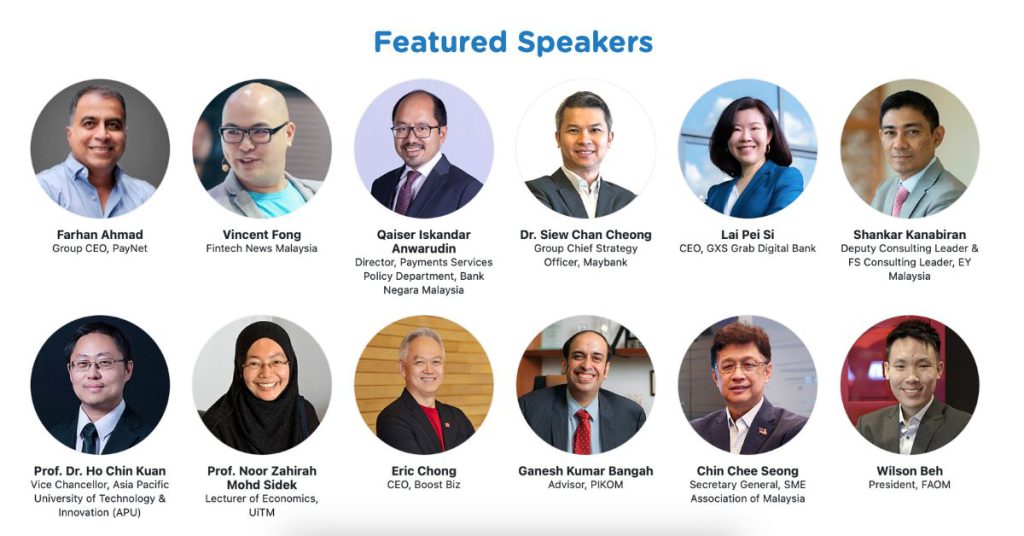
On May 27, the 24-hour hackathon kicked off at the Asia School of Business in Kuala Lumpur, which attracted 440 participants.
A total of 220 participants were shortlisted to showcase their talents; they represented 50 teams of three to five individuals.
The competition comprised university students, working professionals, freelancers, along with startup teams, who were tasked with hacking solutions that could accelerate Malaysia’s digital payments ecosystem.
PayHack 2023 circled around four key challenges:
- Security and fraud: Address security issues related to e-KYC, secured authentication, identity theft, payment fraud, e-payment security, or the like
- Efficiency: Optimise the performance of digital payments via automation or technological improvements, or better use of human capital
- Sustainability: Contribute towards environmental conservation or any of the Sustainable Development Goals 2030 through the digital payments space
- Financial inclusion: Expand access of e-payment services in underserved areas or communities
On May 28, Vulcan Post attended the finals of PayHack 2023 and saw the top 10 impressive, albeit sleep-deprived, teams persevere through the final challenge.
They had to present their working prototypes to a panel of grand judges, and each team was only given five minutes to demonstrate their ideas.
The judges were:
- Farhan Ahmad, Group Chief Executive Officer at PayNet
- Teh Lip Guan, Chief Technology Officer at PayNet
- Gary Yeoh, Chief Commercial Officer at PayNet
- Ruslena Ramli, Director, Digital Finance and Islamic Digital Economy at Malaysian Digital Economy Corporation (MDEC)
- Karen Puah, Advisory Board at Fintech Association of Malaysia (FAOM)
And the grand prize went to…
Team Make1tFeature, who took on the fourth challenge on financial inclusion.
Called EveryPay, their solution intends to help senior citizens adopt digital payments, especially those who are intimidated by the ever-changing advancements in technology.
Make1tFeature explained that digitally illiterate individuals can get overwhelmed when they open up payment apps because there are too many features being presented on the user interface.
“They’re not sure what to click on and may be afraid of choosing the wrong functions, and they think that they’ll accidentally transfer out all their money in an instant,” the team elaborated.
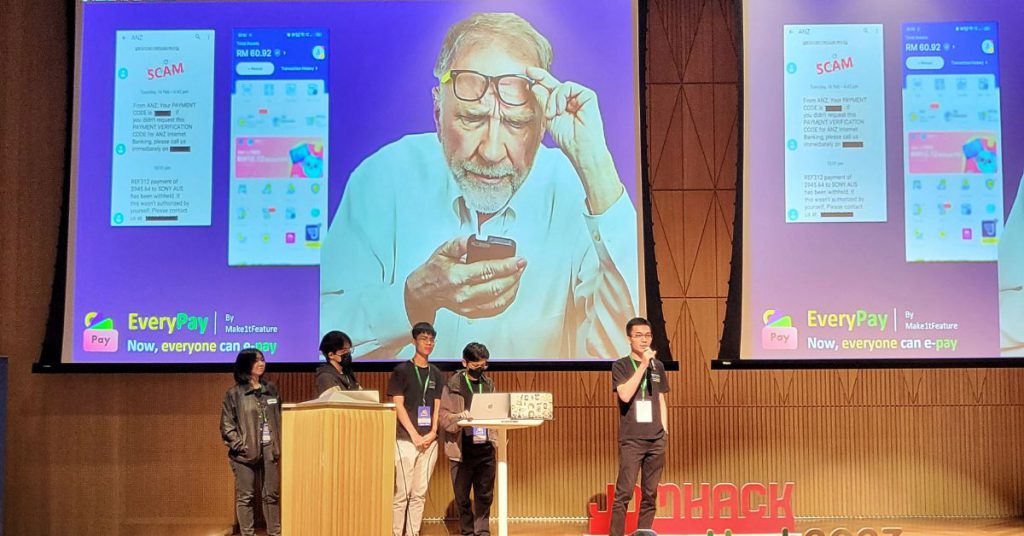
On top of that, plenty of fraud and scam cases circulate in the news, which incites fear in those reading them, validating their concerns about adopting e-payment technologies in the first place.
To solve these challenges, Make1tFeature’s idea is to create a compressed, or “lite” version of digital payment apps. It will strip down the number of functions available, and only keep core ones like making reloads and payments.
“So there’ll be fewer steps for them to perform a transaction, therefore fewer chances for them to mess up. They’ll be more likely to use [this app] because it will be more approachable to them,” stated the team.
There will also be a guardian system, where the children of these elders can link their accounts and oversee all transactions. For example, the guardian will receive notifications whenever their elderly parent (dependant) makes payments or reloads.
“You can think of it like parental controls, but flipped,” they mused.
With the guardian’s ability to monitor their parent’s transactions, they can also flag any suspicious activity happening in their dependant’s accounts.
Through EveryPay, the silver-haired community can be more confident in adopting digital payments, knowing that their children are keeping an eye on them from a distance.
The Make1tFeature team were crowned the champions for their solution, earning them a cash prize of RM20,000.
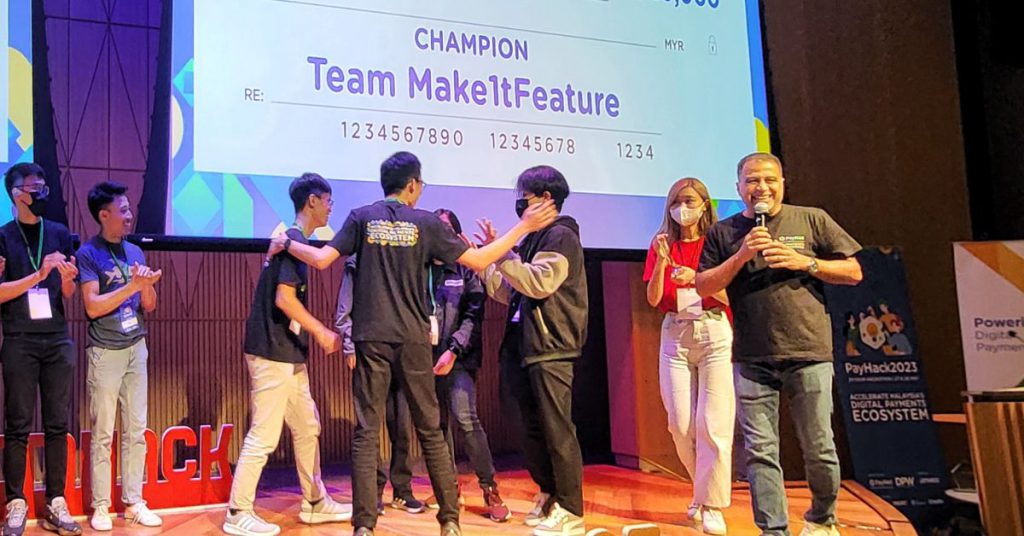
As for the first and second runners-up, their solutions tackled the second challenge on efficiency, as well as the financial inclusivity challenge, respectively.
Team Say came in second place with their solution, Snap N Go, winning them RM15,000.
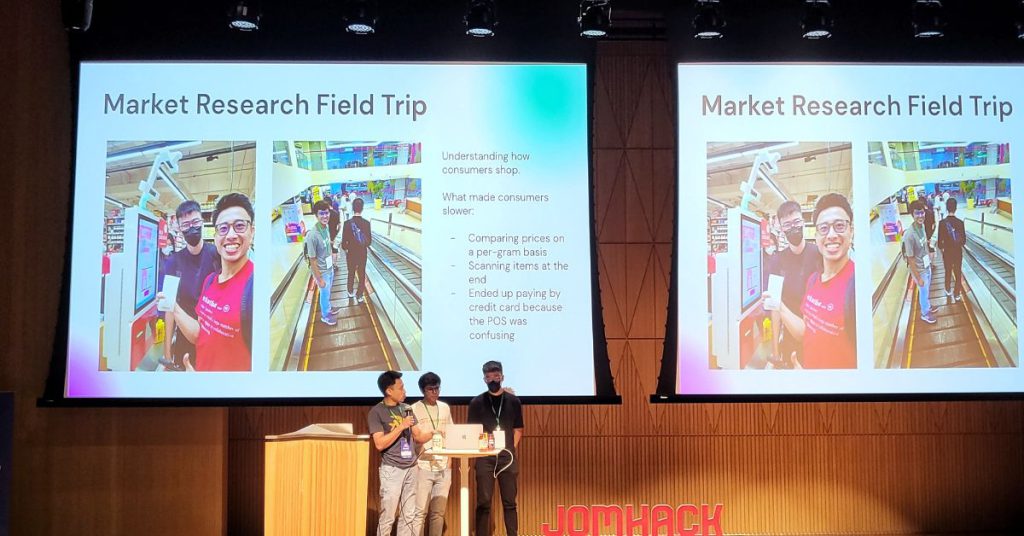
Snap N Go is an app that allows shoppers to scan products in a grocery store, and the app will come up with price comparisons of similar items based on their per-gram costs, and even caloric count.
Customers can subsequently add these items to their digital and physical carts, then easily checkout and make payments via the app, negating the need to queue at the cashier.
In third place was Holy Pandas, who took home RM5,000 for their solution of helping less digitally literate individuals navigate payments, via an AI voice assistant called FixerPay.
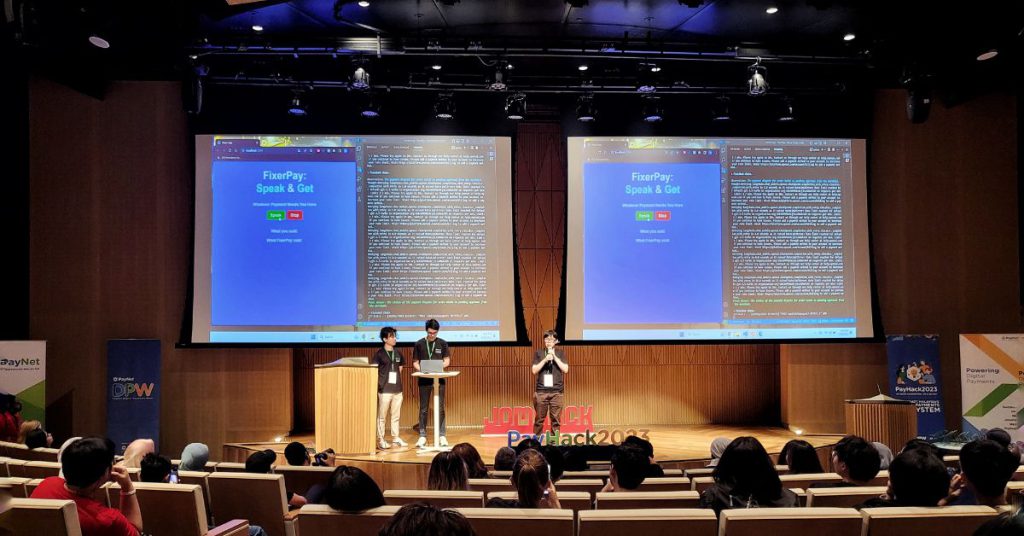
FixerPay can be thought of as an Alexa for performing any function that can be done on an e-wallet, like applying for a refund from Grab.
Utilising ChatGPT’s free API, the language model simplifies the steps required to perform activities on an app that may be difficult for users like elderly parents to navigate.
-//-
Other than the three winning teams, the seven others who made it to the finals each brought home a consolation prize amounting to RM1,000.
Ultimately, PayHack 2023’s judges were impressed with the winning teams’ abilities in utilising existing solutions and tech in the market to build complementary solutions.
Following the hackathon, the teams have gained invaluable insights into the opportunities their working prototypes could pose in society.
Should they choose to develop their ideas into real-life apps and services one day, Malaysia’s digital payments market may soon see the solutions that were birthed from this hackathon.
Also Read: This M’sian brand has sustained itself with just one fizzy honey beverage for 6 years
Featured Image Credit: Vulcan Post
STEM jobs at risk as new AI-powered lab synthesises 100x more novel materials than humans do
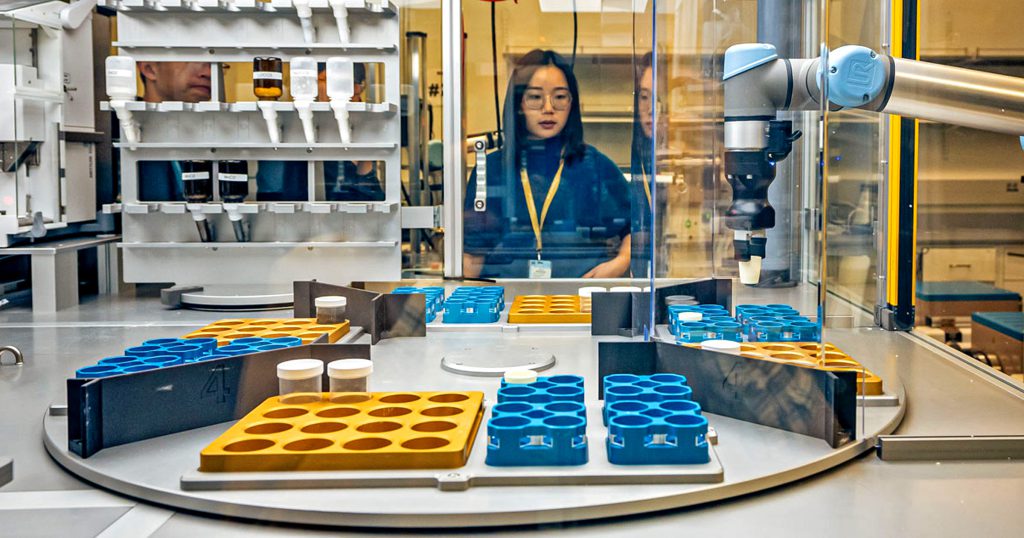
Disclaimer: Any opinions expressed below belong solely to the author.
Imagine you had thousands of recipes worth trying, each one with a potential for being really delicious, but you had to try making them all by hand, one by one.
Well, this is the reality of materials science which, however, may soon be coming to an end — with both good and not-so-good consequences.
Scientists responsible for the Materials Project at Lawrence Berkeley National Laboratory in California have decided to replace much of the human bottleneck with artificial intelligence, offloading the tedious work onto intelligent robots, which painstakingly follow each new chemical recipe, trying to discover novel materials that can lead to technological breakthroughs.
Because the process is automated and conducted by programmed machines, it can be done day or night, 24/7, 365 days each year.
And its daily efficiency is already 100 times higher than that of human researchers.
The tireless robots can complete 100 to 200 runs each day, using 200 pre-loaded powder precursors (containing eg. different metals like lithium, copper, manganese etc), three arms, and eight furnaces packed in a space equivalent to that of a medium-sized apartment (600 square foot).
But robotic arms don’t merely combine different precursors randomly — that alone would not need mechanical intervention (even humans could do that fairly quickly, after all) or at least, the gains from it would not have been quite so spectacular.
This is where “artificial intelligence” comes in.
Because the AI running the system has been trained in chemistry, it is actually using its acquired understanding of chemical processes to select and prioritise experiments on the go, spotting patterns that may have eluded scientists and then rapidly test them — without even taking a lunch break.
“The system at A-Lab is designed as a “closed-loop,” where decision making is handled without human interference. The robots operate around the clock, freeing researchers up to spend more time designing experiments.”
On its own, it determines the mixtures and then distributes them across crucibles feeding them different gasses, as needed, baking them at different temperatures, over different times and in different sequences, autonomously determined by the intelligent system without human input.
“I have made more new compounds in the last six weeks than my whole career.”
These discoveries may help us create new batteries, harness the power of solar energy, bring stronger, more durable materials into engineering and manufacturing — the possibilities are quite endless and the number of combinations could, very well, be limitless.
What’s going to happen to humans?
As we’re gasping over the remarkable output of the laboratory, the elephant in the room is the same as ever. What about all of those human researchers and their jobs?
And what about millions of students around the world, sold on the idea of a well-paying STEM profession, which governments around the world have been pushing hard in recent years?
Typically, as I often comment here, I would say that humans are still going to be necessary to guide the AI systems, ensuring that they fulfil our demands.
After all, personal computers have allowed us to do many things way more efficiently than before and yet, our quality of life and job opportunities have only improved with time.
However, witnessing overnight improvement of a factor of 100 does raise the question: how many researchers will we actually need?

After all, the main strength of AI is not only that it can acquire knowledge and reason remembering every detail (something that humans already struggle with), but that it can also be trained in processes and then execute them at speed and precision that humans can’t — while learning and improving better than we do on the way.
We have to be honest with ourselves — our capabilities are limited. We aren’t even able to remember everything we’ve ever learned, let alone understand it perfectly and then reason on its basis, while conducting one experiment after another.
Great minds do it better than the average do, but intelligent machines trump both — and they can do it all day without taking a break or complaining about working conditions.
“The important thing is not working in parallel, but instead to iterate rapidly, the way scientists operate. We want the system to try something, analyse the data, and then decide what to do next to get closer to the goal.”
Any task that can be scripted in some way is going to be performed by thinking robots very, very soon.
Humans will be relegated to control and, at most, some guidance towards the goals that matter to us — i.e. setting targets for what we want to achieve, in which domain, and to what parameters.
But while it means we are still going to need graduates in STEM fields, it also seems that we are not going to need nearly as many as we do today.
Featured Image Credit: Marilyn Sargent / Berkeley Lab
Also Read: How to survive AI? Microsoft publishes a list of skills needed by human employees in 2023
How this Hong Kong-based incubator is fostering a new gen of deeptech startups in M’sia
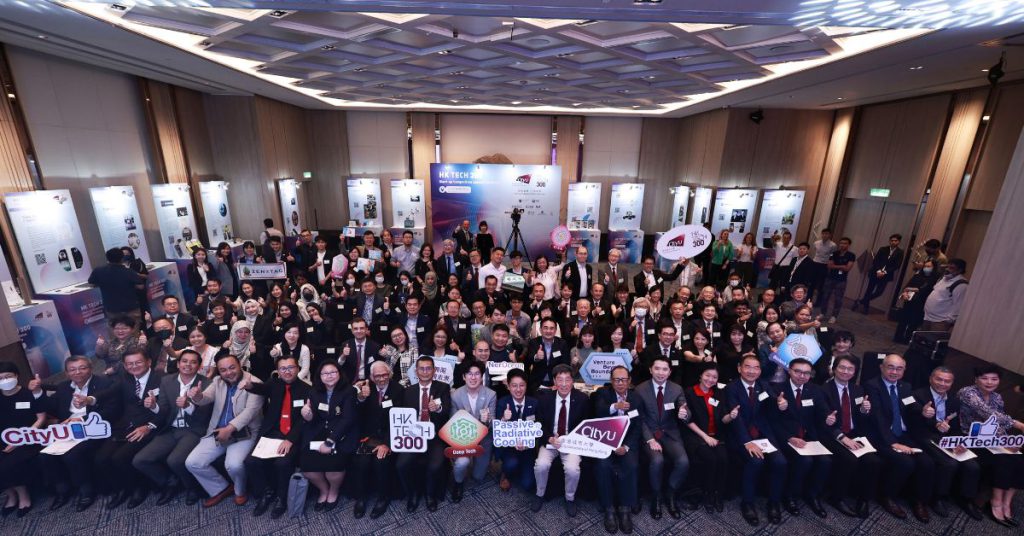
[This is a sponsored article with City University of Hong Kong.]
It’s no secret that tech startups need a conducive, well-equipped space, as well as various support to conduct their high-tech R&D.
Before bringing their ideas to market, they will need lots of funding, and may even want to patent their ideas.
City University of Hong Kong wants to guide Malaysian and regional entrepreneurs through these hurdles by extending its flagship startup incubation programme, HK Tech 300, to the rest of Southeast Asia (SEA).
But first, what impact have HK Tech 300 and City University of Hong Kong made in their home base?
Empowering student entrepreneurs to innovate
HK Tech 300 is an innovation and entrepreneurship programme by City University of Hong Kong in 2021.
Placing in QS World University Rankings’ top 100, the institution is known in Hong Kong as a hub for innovation in research and professional education.
To empower its students, alumni, and the public in building startups that solve global problems in biotech, deeptech, AI, and fintech, the university allocated a total of HK$600 million (RM353.3 million at the time of writing) to launch a dedicated startup incubation programme, HK Tech 300.
The aim of HK Tech 300 is to provide growth opportunities for young people, while translating the university’s research results and intellectual property (IP) into practical applications.
Did you know: Deeptech is an area of business or research involving advanced science and technology, such as AI, blockchain, or advances in biotechnology, to provide solutions to complicated problems.
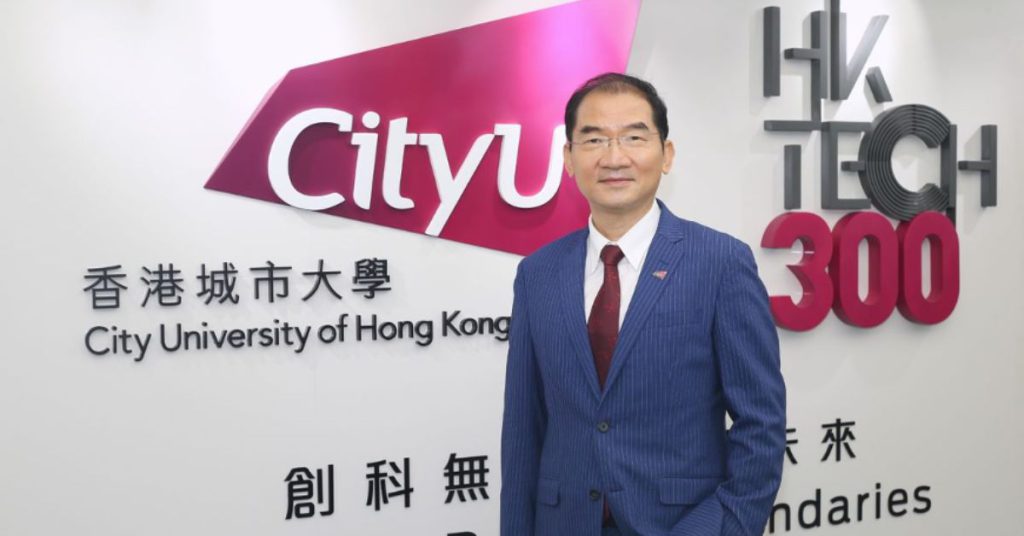
“An impressive example is i2Cool Limited (i2Cool), a startup founded by one of our PhD graduates together with his supervisors,” said Professor Michael Yang Mengsu, Senior Vice-President (Innovation and Enterprise) and Chairman of the HK Tech 300 Executive Committee at City University of Hong Kong.
“Their product is a radiative cooling paint, which is a sustainable, energy-efficient solution for reducing heat and improving thermal comfort in buildings, particularly in hot and humid climates.”
i2Cool received an angel fund investment via HK Tech 300 in 2021.

To date, HK Tech 300 has nurtured over 560 startup teams, each of which received a HK$100,000 seed fund (RM58,876 at the time of writing).
The programme has also provided up to HK$1 million (RM588,768 at the time of writing) in angel funds to more than 110 startups.
Extending their resources to SEA startups
On May 8, 2023, the startup incubation programme was expanded to those in the ASEAN region via the HK Tech 300 Southeast Asia Start-up Competition (HK Tech 300 SEA Competition).
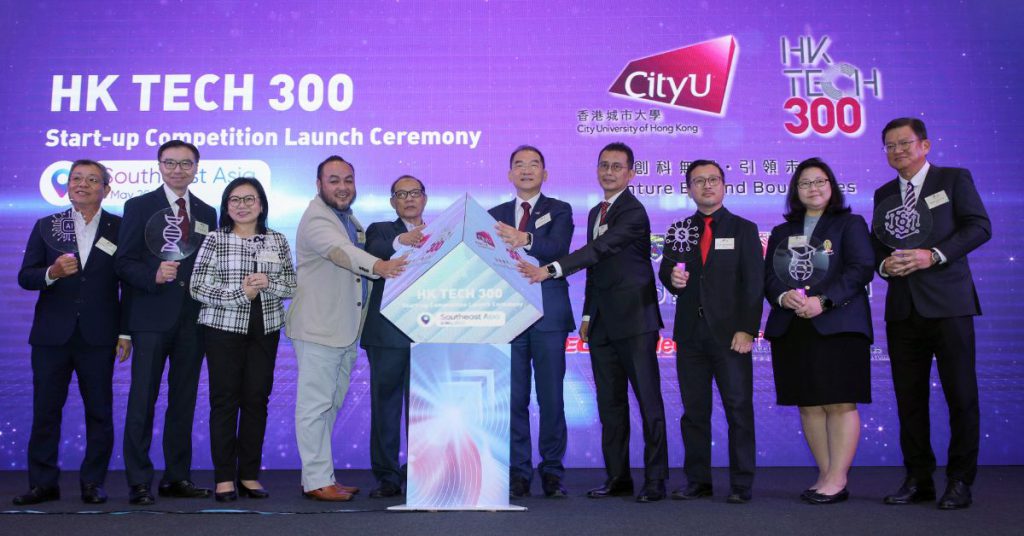
The competition wants to discover SEA startups with the potential to expand their businesses to Hong Kong, Mainland China, and beyond.
The top 10 winners of the competition will each be awarded an angel fund investment of up to HK$1 million (RM588,768 at the time of writing), providing a significant boost for their individual entrepreneurial journeys.
In addition, they will get access to business-matching services in China’s Greater Bay Area.
They include further investment opportunities from HK Tech 300’s co-investors, along with mentorship and coaching from the university’s professionals.
According to Professor Yang, they currently have more than 150 mentors who are seasoned entrepreneurs and industrialists.
“Some of them even invest in the programme’s startups or join the management team to help run the companies,” he added.
Startups will also get to run their businesses at coworking spaces in City University of Hong Kong’s campus, and other Mainland Research Institutes.
The programme encourages startups to use City University of Hong Kong’s patented technologies for their R&D too.
Pushing universities to build entrepreneurs
To discover these startups, the HK Tech 300 SEA Competition is partnering with universities, incubators, as well as various chambers of commerce in Malaysia and the rest of SEA.
They include:
- Universiti Malaya (UM)
- Universiti Putra Malaysia (UPM)
- Universiti Brunei Darussalam (UBD)
- Chulalongkorn University from Thailand
- Malaysia Digital Economy Corporation (MDEC)
- Selangor Information Technology and Digital Economy Corporation (Sidec)
- Sunwah Innovations from Vietnam
The HK Tech 300 SEA Competition is currently open for startups to join through the above-listed SEA partners, based on a nomination process by these stakeholders.
Startups who are keen to participate must be under five years old, and operate in the areas of biotech and healthtech, deeptech, ICT and AI, along with fintech.
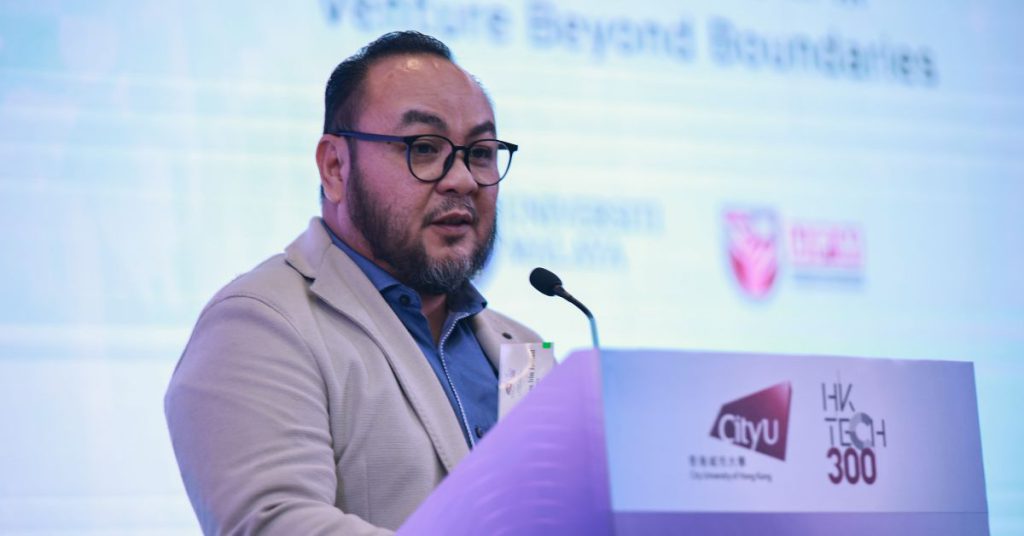
Mr Izham Bin Ismail, Director of Investment Relations and Advisory of the Malaysia Digital Economy Corporation (MDEC), believes that the HK Tech 300 SEA Competition will contribute to the country’s goal of attracting five unicorns in the years to come.
To date, Malaysia has already identified three unicorns (Carsome, edotco, AirAsia Digital).
Ultimately, HK Tech 300’s involvement in supporting local universities to nurture young, brilliant minds bodes well for the next gen of deeptech startups in Malaysia.
- Learn more about HK Tech 300 SEA Competition here.
- Read about other Malaysian startups we’ve covered here.
Also Read: When not cooking at a Michelin-starred spot, this M’sian is designing Japanese chef knives
Featured Image Credit: City University of Hong Kong